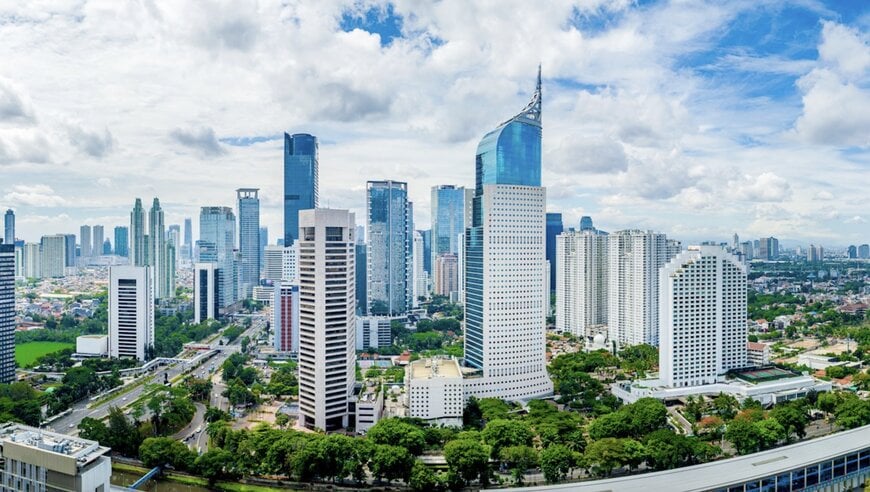www.indo-industry.com
01
'25
Written on Modified on
Indonesia Accelerates Energy Transition with Renewables and Digital Innovation
ABB research reveals 40% of Indonesian organizations now source over half their energy from renewables, supported by strong investment, policy reforms, and digital integration.
global.abb

Indonesia’s energy transition is advancing at pace, driven by growing adoption of renewables, rising investment, and digital integration, according to the Asia Pacific Energy Transition Readiness Index 2025, an industry research project conducted by ABB’s Energy Industries division. 40 percent of respondents report that their organizations are already sourcing over half their energy from renewables(compared to 25 percent regionally). Looking ahead, 87 percent expect renewable use to grow by more than 20 percent in the next five years, ahead of the regional average of 77 percent.
This trajectory is supported by regulatory reforms, such as the draft Renewable Energy and New Energy Law (RUU EBT 2025), which provide clear policy direction for expanding renewable capacity.
The Asia Pacific Energy Transition Readiness Index 2025 is based on a survey of over 4,000 businessleaders responsible for automation, electrification, digitalization and sustainability strategies across 10industries and 12 geographical markets, including Indonesia. Based on 20 indicators across Strategy,Technology and Infrastructure, Finance, and Talent – the Indonesia results point to rapid progress,supported by national policies and a growing focus on digitalization.
“Indonesia is pushing ahead in its energy transition progress,” said Abhinav Harikumar, Vice Presidentof ABB’s Energy Industries division, Southeast Asia. “Strong climate policies, high impact investmentsand optimism around innovative technologies such as AI and automation solutions are fueling thismomentum. To go further, strengthening collaboration across ecosystems, green skill nurturing anddigital adoption will be vital.”
Financial momentum is building in parallel. 86 percent of Indonesian organizations are allocating more than 10 percent of CAPEX to transition projects, compared with 73 percent regionally. This reflects growing confidence that transition investments are viable and impactful, strengthening prospects toscale renewables and advance the transition.
Meanwhile, technological innovation is emerging as a major accelerator. 70 percent of respondents view technology as the greatest potential driver, slightly ahead of the 65 percent regional average, while AI and automation are seen as transformative by 47 percent of leaders, compared to 32 percent regionally. At the same time, digitalization has become the top investment priority for 47 percent of Indonesian organizations, underscoring the urgency of modernizing grid systems. For Indonesia, this shows that digital and automation tools are now seen as essential to making renewables viable at scale and modernizing grids, systems, and infrastructure to drive efficiency.
The energy transition is also a people centered transformation, and collaboration is central to strengthening the future green talent pool. 30 percent of respondents say that their organizations see room for stronger talent resourcing to support their energy transition strategy and plans. To address this, companies are also already engaging external partners to develop sustainability skills, most often through industry groups (54 percent), international development organizations (43 percent), government agencies (33 percent), and universities and research institutions (30 percent).
Respondents also recognize that collaboration is vital to sustaining overall progress: One in four identify public–private partnerships as an untapped opportunity, with increased private sector investment (61 percent), cross-regional government collaboration on grid infrastructure (56 percent), and stronger incentives and subsidies (55 percent) cited as areas that hold significant potential to accelerate energy transition.
Conducted between May and June 2025, the research demonstrates strong commitment to the energy transition both in Indonesia and APAC. Unlocking the full potential of Indonesia’s energy transition will require sustaining momentum of renewable adoption and investments; continued development and digitalization of existing systems; building out the green talent pipeline; and greater collaboration between the public and private sectors. If these can be achieved, Indonesia’s energy transition is well-placed to accelerate in the coming years. Full report available here.
new.abb.com

